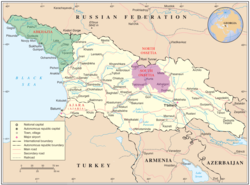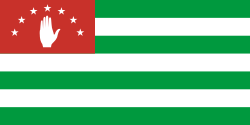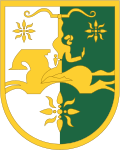


The following outline is provided as an overview of and topical guide to Abkhazia:
Contents
- General reference
- Geography of Abkhazia
- Environment of Abkhazia
- Regions of Abkhazia
- Demography of Abkhazia
- Government and politics of Abkhazia
- Branches of government
- Foreign relations of Abkhazia
- Law and order in Abkhazia
- Military of Abkhazia
- Local government in Abkhazia
- History of Abkhazia
- Culture of Abkhazia
- Art in Abkhazia
- Sports in Abkhazia
- Economy and infrastructure of Abkhazia
- Education in Abkhazia
- See also
- References
- External links
Abkhazia is a de facto independent state [1] [2] [3] [4] [5] [6] located in Eurasia whose de jure sovereignty is only recognized by Russia, Nicaragua, Venezuela, Nauru and the disputed states of South Ossetia and Transnistria. The rest of the world's states consider Abkhazia to be de jure part of Georgia. [7]
Abkhazia is located in the western Caucasus, on the eastern coast of the Black Sea. On the north, it borders the Russian Federation, on the east Georgia's Samegrelo-Zemo Svaneti region.



